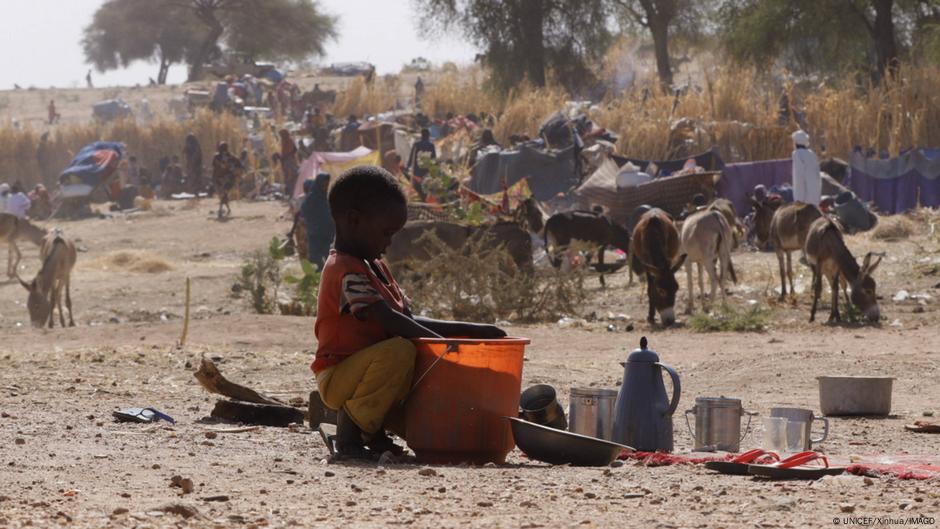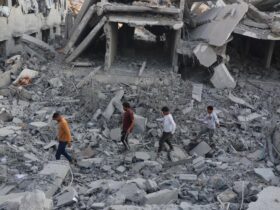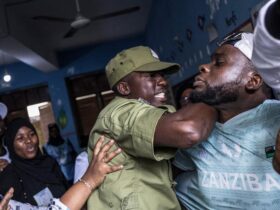About 260,000 civilians are trapped in El Fasher, half of whom are children. For months, the city has been overrun by Rapid Support Forces (RSF) militia and cut off from the outside world. For quite some time, food has not been reaching El Fashar, which is located in Darfur province, about 200 kilometers from the border with Chad. According to eyewitnesses, many people are now living on animal fodder.
On Monday, UN Secretary-General Antonio Guterres said the level of suffering caused by the fighting in the city was “unbearable”.
The statement comes after the paramilitary RSF recently announced that it had gained full control of the city on Sunday. According to the Sudanese Journalists Association, all communications, including satellite networks, have now been blocked.
There is a possibility of further increase in the matter
Observers fear that the trapped civilian population will suffer excessive violence. Marina Peter, chair of the German Sudan and South Sudan Forum, told DW that for months, civilians and soldiers of the Sudanese Armed Forces, or SAF, deployed in El Fasher have received little more than essential items. “For weeks, trapped civilians have been trying to leave the city. Since it became clear that the RSF could completely capture the city, attempts to flee have increased once again,” he said.
However, in his view, his chances of succeeding are very slim. “Until recently, some people managed to escape while others were shot while trying to escape,” he said, adding that several more people have been arrested. “Now we fear mass shootings, rape and famine getting worse. According to our contacts in the city, on average three children are dying every hour,” he told DW.
power struggle
The conflict in Sudan stems from the end in 2019 of the authoritarian rule of President Omar al-Bashir, who based his power on the official military: the Sudanese Armed Forces, now under the command of Sudan’s de facto ruler, General Abdel Fattah al-Burhan. However, at the same time, al-Bashir also relied on several militias affiliated with the army, including the Rapid Support Forces (RSF) led by Mohammed Hamdan Daglo, also known as “Hemeti”.
Along with the SAF, Hemeti’s group was integrated into a civilian-led transitional council formed after the fall of al-Bashir. In October 2021, the two forces launched a joint coup and Hemeti became al-Burhan’s deputy. However, the two commanders disagreed about the structure and hierarchy of the combined forces. When Hemeti refused to integrate his militia into the national army, the situation escalated into an open power struggle that escalated into war.
murder, rape and robbery
Originating from the Janjaweed, a group of mounted militias of Arab origin, the Rapid Support Forces were deployed shortly after the turn of the millennium to counter rebel groups that were considered not Arab but African, such as the Sudan Liberation Army (SLA) and the Justice and Equality Movement (JEM) in West Darfur. At the time, militias were already using excessive violence, including against civilians.
A report by Human Rights Watch (HRW) in June said, “RSF and its allied militias targeted and killed civilians on a large scale, many of them because of their ethnicity.” “RSF also committed widespread sexual violence, particularly mass rape, and looting. They also destroyed towns and villages, often by arson, and looted aid supplies on a large scale,” the report said. The International Court of Justice looks at evidence of war crimes in Sudan.
demoralize the enemy
Marina Peter now fears that the same pattern is going to be repeated in El Fasher in the coming days. In many cases, commanders are in charge of soldiers who are extremely intoxicated. Some of them are also child soldiers, he said. “We are familiar with the patterns and logic that are now being applied to El Fasher from other places in Sudan,” Peter said.
“The objective is to demoralize the enemy. And the most effective way to do that is to rape women and men. Additionally, the RSF has dug trenches around the city so that no one can escape. The objective is to systematically decimate the city. Human lives do not count in this conflict.”
Arjan Hehenkamp, Darfur crisis manager, from the aid organization International Rescue Committee (IRC). reports Same experience. Some people have managed to flee to the city of Tawila, where hundreds of thousands of people are already seeking refuge.
“The people coming from El Fasher are coming from what can only be described as a scene from hell, a city torn apart by conflict, destruction and despair,” he said on the organization’s website. “They arrive with nothing but the clothes on their backs, deeply traumatized, looking for safety and assistance. But Tawila itself is at breaking point. Without significant scale-up in humanitarian assistance, the suffering here will deepen even more,” he said.
But it is not only the RSF that is using violence against civilians. The Sudanese Armed Forces (SAF) have also carried out “brutal attacks on the civilian population”, HRW reports. “The list of their atrocities is growing almost daily,” the report said.
There have been fears for months that Sudan could disintegrate as a result of the war. “This threat is becoming more real with every day of this war,” predicts Marina Peter.
This article was originally published in German.





Leave a Reply